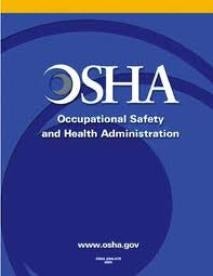In a memorandum to Regional Administrators dated October 11, 2018, OSHA clarified the agency’s position as to whether certain drug testing policies or safety incentive programs would be considered violations of part 29 C.F.R. § 1904.35(b)(1)(iv). Part 29 C.F.R. § 1904.35(b)(1)(iv) prohibits employers from discharging or discriminating against an employee for reporting a work-related injury or illness. When the requirement was originally promulgated OSHA took the position that certain drug testing and safety incentive policies could deter employees from reporting work-related injuries and illnesses and would be a violation of the regulation.
In the memorandum OSHA stated that
“29 C.F.R. § 1904.35(b)(1)(iv) does not prohibit workplace safety incentive programs or post-incident drug testing. The Department believes that many employers who implement safety incentive programs and/or conduct post-incident drug testing do so to promote workplace safety and health. In addition, evidence that the employer consistently enforces legitimate work rules (whether or not an injury or illness is reported) would demonstrate that the employer is serious about creating a culture of safety, not just the appearance of reducing rates. Action taken under a safety incentive program or post-incident drug testing policy would only violate 29 C.F.R. § 1904.35(b)(1)(iv) if the employer took the action to penalize an employee for reporting a work-related injury or illness rather than for the legitimate purpose of promoting workplace safety and health.”
Safety Incentive Programs
According to the memorandum, OSHA acknowledges that some safety incentive programs promote workplace safety and health. The memorandum clarifies that not only are safety incentive programs that reward employees for reporting near-misses or hazards, or encourage involvement in a safety and health management system permissible but so are rate-based safety incentive programs, which focus on reducing the reducing number of reported work-related injuries and illnesses.
When the regulation was promulgated employers raised concerns about the types of safety incentive programs that might be considered in violation of OSHA’s requirements. At the time, OSHA took the position that “rate-based” policies where employees are awarded bonuses tied to the number of recordable injuries or illnesses was prohibited. This memorandum explains that such policies are not necessarily prohibited.
OSHA clarified that “[r]ate-based incentive programs are also permissible under § 1904.35(b)(1)(iv) as long as they are not implemented in a manner that discourages reporting…OSHA would not cite the employer under § 1904.35(b)(1)(iv) as long as the employer has implemented adequate precautions to ensure that employees feel free to report an injury or illness.”
OSHA provided some examples of measures employers could take to implement adequate precautions which would avoid the unintentional deterrent effect of a rate-based safety incentive program or policy. “[A]ny inadvertent deterrent effect of a rate-based incentive program on employee reporting would likely be counterbalanced if the employer also implements elements such as:
-
an incentive program that rewards employees for identifying unsafe conditions in the workplace;
-
a training program for all employees to reinforce reporting rights and responsibilities and emphasizes the employer’s non-retaliation policy;
-
a mechanism for accurately evaluating employees’ willingness to report injuries and illnesses.”
The memorandum may allay some employer concerns about the use of rate-based safety incentive programs. Particularly where an employer ties a portion of a supervisor or manager bonus to the number of recordable work-related injuries or illnesses. The use of such incentives under this memorandum are not prohibited per se.
Drug Testing Programs
OSHA also clarified that most drug testing policies are permissible, including post-accident drug testing. OSHA specifically noted that the following types of drug testing policies were not in violation of OSHA’s requirements.
-
Random drug testing.
-
Drug testing unrelated to the reporting of a work-related injury or illness.
-
Drug testing under a state workers’ compensation law.
-
Drug testing under other federal law, such as a U.S. Department of Transportation rule.
-
Drug testing to evaluate the root cause of a workplace incident that harmed or could have harmed employees. If the employer chooses to use drug testing to investigate the incident, the employer should test all employees whose conduct could have contributed to the incident, not just employees who reported injuries.
This guidance is the most direct and clear guidance provided to employers regarding OSHA’s position on drug testing policies and safety incentive policies. More importantly, it makes clear that as a general rule such policies are not a violation of OSHA requirements. Further, the memorandum directly states that it supersedes any other agency guidance previously issued which may have interpreted Sections 1904.35(b)(1)(i) and (iv) inconsistent with the agency’s position.
The memorandum also instructs agency officials to consult with OSHA’s Directorate of Enforcement Programs before issuing citations under § 1904.35(b)(1)(iv) relating to safety incentive or drug testing policies.




 i
i


